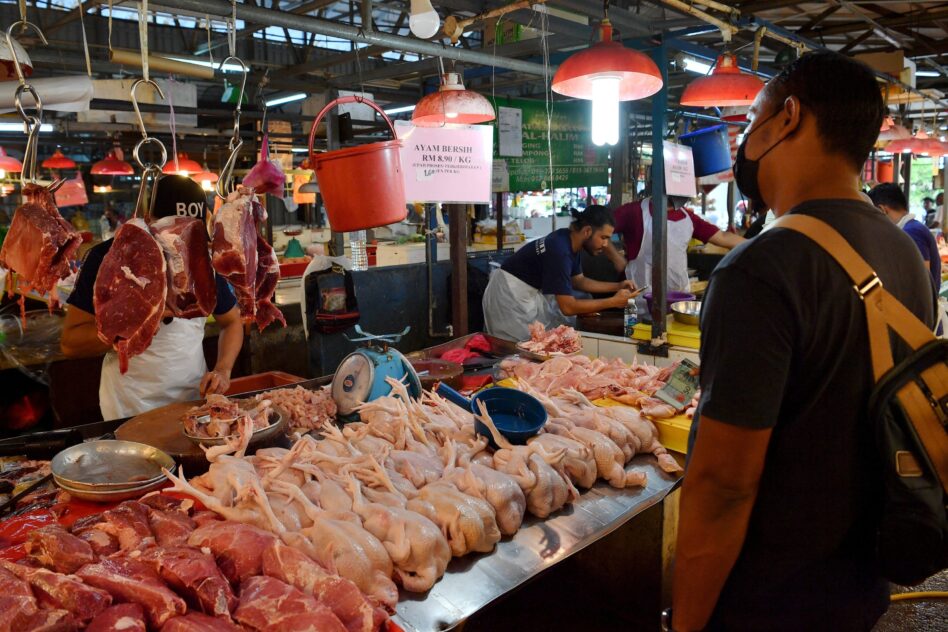By Jamari Mohtar
THE passage of Budget 2021 in December and the announcement on the availability in Malaysia of COVID-19 vaccine in February are the antecedents that would create a sense of serendipity at the beginning of 2021 that could herald an easing up of the situation.
Moreover, there is also a sense of inevitability all around the world the deadly virus is here to stay. Some countries are focusing on how to make our coexistence with the virus, if not a symbiotic one, at least a less painful and tragic one.
But there is a consensus: whatever it takes to make this coexistence a new norm, the basic standard operating procedures (SOPs) must be observed at all time in the public domain.
Also, coexistence doesn’t mean the daily infections should be allowed to remain at the current four-digit or worse, five-digit level.
In order to prevent the expectation that vaccine is THE solution from becoming an overhyped mantra, there is a need for the relevant authorities to tamper this expectation by stressing that vaccine is not a cure for COVID-19.
It is merely a prevention against contracting the disease, which means a great opportunity for the healthcare and pharmaceutical industry to go big on the research for a cure.
But what’s more important is for the authority from now on, to embark on a strategic planning on how to inoculate the population efficiently and effectively in order to achieve a resounding success in inoculating the public. Any misstep on this would make Malaysia a laughing stock of the world.
This can be done by roping in the best minds the country has in medicine, communicable diseases, logistics, security, media and communications, data scientists, researchers and technologists of the Fourth Industrial Revolution (4IR) to sit in the high-powered strategic planning committee for the inoculation of COVID-19 amongst the population.
This committee must also adopt a whole of society approach by recruiting social influencers in its subcommittees so that the right communications and instructions can be passed down to the population and the media during the critical time when the inoculation begins.
Instead of being bogged down with the politicking of the politicians on why the vaccine was made available to Malaysia two months after Singapore, a team of experts should be dispatched by this committee to Singapore or any other countries that has already begun inoculating their population with the task of observing and monitoring how inoculation was done in these countries.
From this team, best practices suitable to the Malaysian context can be distilled for implementation when the time comes for Malaysia to inoculate its population.
In short, what needs to be done from now on are:
- Decision to approve the COVID-19 vaccine should not be mired in a maze of bureaucratic red tape but must be done relatively fast, at least before February;
- It is indeed good to hear Pfizer had already submitted a dossier for evaluation to the National Pharmaceutical Regulatory Agency which is under the Drug Control Authority (DCA) of Malaysia. So far, the DCA has not yet approved any COVID-19 vaccine; and
- Good Distribution Practice which refers to the practices in the distribution of the vaccine from the time it leaves the manufacturing site to the point of administering it to the patient/healthy individual, must be in placed at least before February too.
Once everything has been done and get it over with, this committee will leave behind infrastructure that will be very useful should future pandemic occur.
On the economic front, the easing of the situation at the COVID-19 end, will definitely have a speedier impact on the easing of the economy.
Already, the Asia Pacific Investment Bank is saying Malaysia’s growth rate is expected to rebound to 6.6% in 2021, following the recovery in the country’s domestic and foreign consumption.
Its CEO, Chris Wang, in a statement on Wednesday (Dec 30) said the forecast hinges on quelling the spread of the COVID-19 virus, political stability and increased demand for the country’s exports.
“Due to rising domestic demand and fuel prices, the national inflation rate is predicted to rise marginally to 1.1%, and there will be an unequal pace of recovery and development in the different domestic sectors,” he added.
It seems more analysts and financial strategists are saying 2021 could bring a change in the narrative, as the COVID-19 world economy wriggles its way out of the early days of 2021 as vaccines and more fiscal stimulus flow into it.
According to experts at Morgan Stanley, even as challenges remain, the global recovery is sustainable, synchronous and supported by policy, following much of the ‘normal’ post-recession playbook.
It predicts an expansion of the world economy at 6.4% in 2021 on a V-shaped recovery, with three key factors that will characterise the next stage: synchronised global growth, an emerging-market rebound and the return of inflation.
Against this macro outlook, Morgan Stanley strategists urge investors to trust the recovery and overweight equities and credit vis-à-vis government bonds and cash.
The upbeat assessment of many analysts is so logical if we see that the recovery will start from a lower base after COVID-19 has wrought chaos and destruction in the economy.
In the beginning, global GDP growth will likely be propelled by emerging markets. As developed markets emerge from the recent winter lockdowns, they could add up to this rising trajectory.
By March or April, all geographies and all sectors of the global economy will be joining the recovery.
This growth will be powered by consumer spending which has nearly returned to pre-pandemic levels. The US is a classic example of this when average personal incomes of US households surpassed pre-pandemic levels in September, even after the first round of fiscal support expired.
Add this to China recovery which is already on the card, these two developments bode well for the Malaysian economy, as both countries are our major trading partners.
Meanwhile on the political front, politicking will be a bit subdued in the coming months, as every politician worth their salt know that as long as the daily infections are in the four-digit and the economy is on a recovery trajectory, a snap general election is out of the question.
Hopefully, the interregnum brought about by the pandemic will be used by the politicians for self-reflect to create a political atmosphere where there is less politicking that will lead to a matured and stable political ecosystem in the future.
At the Federal level, even Prime Minister Tan Sri Muhyiddin Yassin does not discount the possibility of the Government cooperating with the Opposition bloc in important matters concerning the country.
2021 will indeed be a good year to ensure the monies approved in Budget 2021 for every ministry will be spent wisely in a transparent and responsible manner via introducing an input-output-impact-outcome metrics.
The current practice that just focus on input-output is inadequate to stop the leak and plunder in government revenue and expenditure.
As we bid goodbye to 2020, let’s welcome 2021 and strive to make it a promising year.
Jamari Mohtar is Director of Media & Communications at EMIR Research, an independent think-tank focused on strategic policy recommendations based upon rigorous research.
The views expressed are solely of the author and do not necessarily reflect those of Focus Malaysia.










